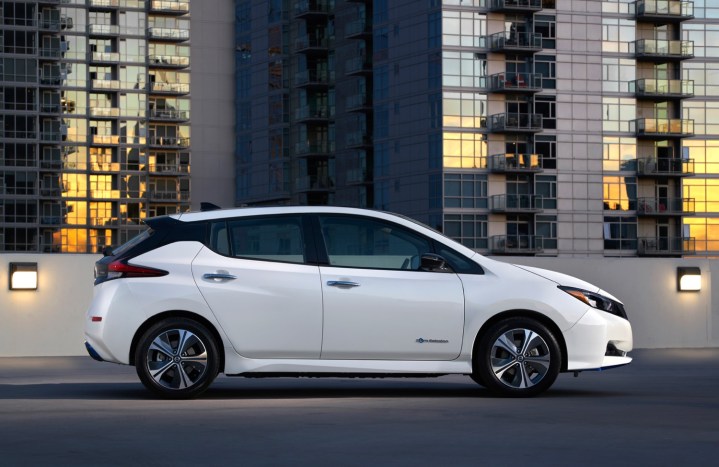
The Renault-Nissan-Mitsubishi Alliance is launching a new cloud platform for connected-car services, and it’s relying on Microsoft to do that. The Franco-Japanese automotive conglomerate’s Alliance Intelligent Cloud will be based on Microsoft Azure, and will launch on new vehicles in Japan and Europe later this year. Plans for the United States have not been confirmed.
“Today, we are deploying a vehicle connectivity platform that will transform the digital experience for customers of Renault, Nissan, and Mitsubishi,” Kal Mos, the company’s head of connected vehicles, said in a statement. The Alliance Intelligent Cloud will be used to enable telematics services and over-the-air software updates (à la Tesla), as well as connect cars to so-called “smart cities” infrastructure. It will also function as a means of harvesting and analyzing data for businesses operating fleets of vehicles.
The Alliance Intelligent Cloud will debut later on this year on the Nissan Leaf and Renault Clio in Japan and Europe. No plans for adding the platform to Mitsubishi models were discussed, but that will likely occur at a future date as Mitsubishi updates its aging lineup and begins sharing more components with its larger siblings.
The alliance announced plans to partner with Microsoft in 2016. It will be the third automaker to use Microsoft Azure as the basis for a connected-car platform, following BMW and Volkswagen. Ford previously partnered with Microsoft on its Sync infotainment systems, but then switched to Blackberry’s QNX platform.
Connecting cars to the cloud allows automakers to offer more data-based services to customers, such as real-time traffic and point-of-interest information. But it may not stop there. General Motors Marketplace allows drivers to buy things like fuel and coffee from their dashboards, creating a lucrative opportunity for automakers and any companies willing to partner with them (even if it may contribute to driver distraction).
Connectivity could also be important for self-driving cars, since it will allow operators to manage whole fleets of them in ridesharing or delivery services. Those are likely to be the two main applications for autonomous cars, at least initially. Companies like Ford and Waymo are already trialing those services.
Editors' Recommendations
- Microsoft brings an Xbox Cloud Gaming feature to Edge to improve visuals
- Microsoft’s Xbox Series X console could power xCloud servers next year
- Nvidia’s EGX is the super-computing cloud platform of the future
- Project xCloud tests draw closer as new apps surface on Microsoft Store
- Microsoft’s cloud gaming platform xCloud is built using Xbox One S hardware


